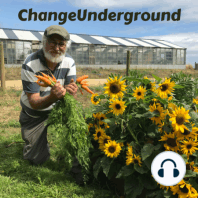6 min listen
68 #worldorganicnews 2017 06 12
ratings:
Length:
7 minutes
Released:
Jun 12, 2017
Format:
Podcast episode
Description
Links CONTACT: podcast@worldorganicnews.com Can “Regenerative Farming” Save Us From Global Catastrophe — GarryRogers Nature Conservation http://wp.me/p5Cqpo-frv Advantages Of Organic Farming — Organic Farms http://wp.me/p5Cqpo-frf 5 reasons why Sustainable Agriculture is good for the environment and you! — Crop Connect Chronicles http://wp.me/p5Cqpo-fqB Clean energy too big to be shut down by Trump – San Francisco Chronicle — Economics Outside the Cube http://wp.me/p5Cqpo-fsr **** This is the World Organic News for the week ending 12th of June 2017. Jon Moore reporting! This week we begin with a post from the blog: GarryRogers Nature Conservation entitled: Can “Regenerative Farming” Save Us From Global Catastrophe? Garry is not completely sure but he provides the article for our consideration. To give you some idea: Quote: “A growing corps of organic, climate, environmental, social justice and peace activists are promoting a new world-changing paradigm that can potentially save us from global catastrophe. The name of this new paradigm and movement is regenerative agriculture, or more precisely regenerative food, farming and land use. End Quote This is a subtle shift in thinking but it is critical. Thinking of food, farming and land use as separate and interconnected rather than just “agriculture” forces us to consider how each component can be regenerative. Regenerating the sector and those which support it. Regenerative land use is supported by composted food wastes from urban settings which in turn supports the farmer and then the food consumer, or as I like to think of them, people. The article though has a different spin on this interconnectedness of the parts and I quote: Quote: “The basic menu for a regeneration revolution is to unite the world’s 3 billion rural farmers, ranchers and herders with several billion health, environmental and justice-minded consumers to overturn “business as usual” and embark on a global campaign of cooperation, solidarity and regeneration. End Quote Clearly I too was discussing the end of “business as usual” and have been since the first of February 2016, but I think the quote pretty much nails both the problem and the solution in one go. Not a lot of room there for Roundup, monocultures and seed monopolies. A vision worth pursuing, I would suggest. And while I could, no where, find it stated, my understanding of regenerative agriculture is that it must be, by its very nature: Organic. As I say this we can segway nicely into our next post from the Blog Organic Farms with their post: Advantages Of Organic Farming. This is a lovely piece of confirmation bias. The piece offer five areas of advantage: 1 Tastier and healthier food 2 Lower use of pesticides 3 Soil management 4 Cost-effectiveness And of course, 5 Environmental friendliness. I will just add that is post was not written by someone who has English as their first language but it is worth a read. As ever, all posts and references have links in the show notes. I will focus my attention on benefit number 4. Cost effectiveness. This is something I’ve wondered about for a long time. Especially on a mixed farm where manures are available as part of the processes of farming, the costs of organic farming should, nay must, be lower than that of chemical based farming. Clearly the organic system will not compete against CAFOs, that is confined animal feeding operations or feedlots as they are also know. But I’m not sure that is either a fair comparison or that CAFOs represent anything akin to farming in any way. They are modelled on the ideas of Henry Ford’s factories not on regenerative, life affirming interconnectedness of existence. I’m pretty sure I’ve ranted elsewhere on these systems and will let it go through to the keeper on this occasion. The post though does provide some thoughts on the cost effectiveness of organic farms: Quote: As compared to conventional farming, biological production stays more cost-effective. The main reason behi
Released:
Jun 12, 2017
Format:
Podcast episode
Titles in the series (100)
18.1 Supplemental Episode John Seymour: A supplemental episode finishing our walk through… by ChangeUnderground
